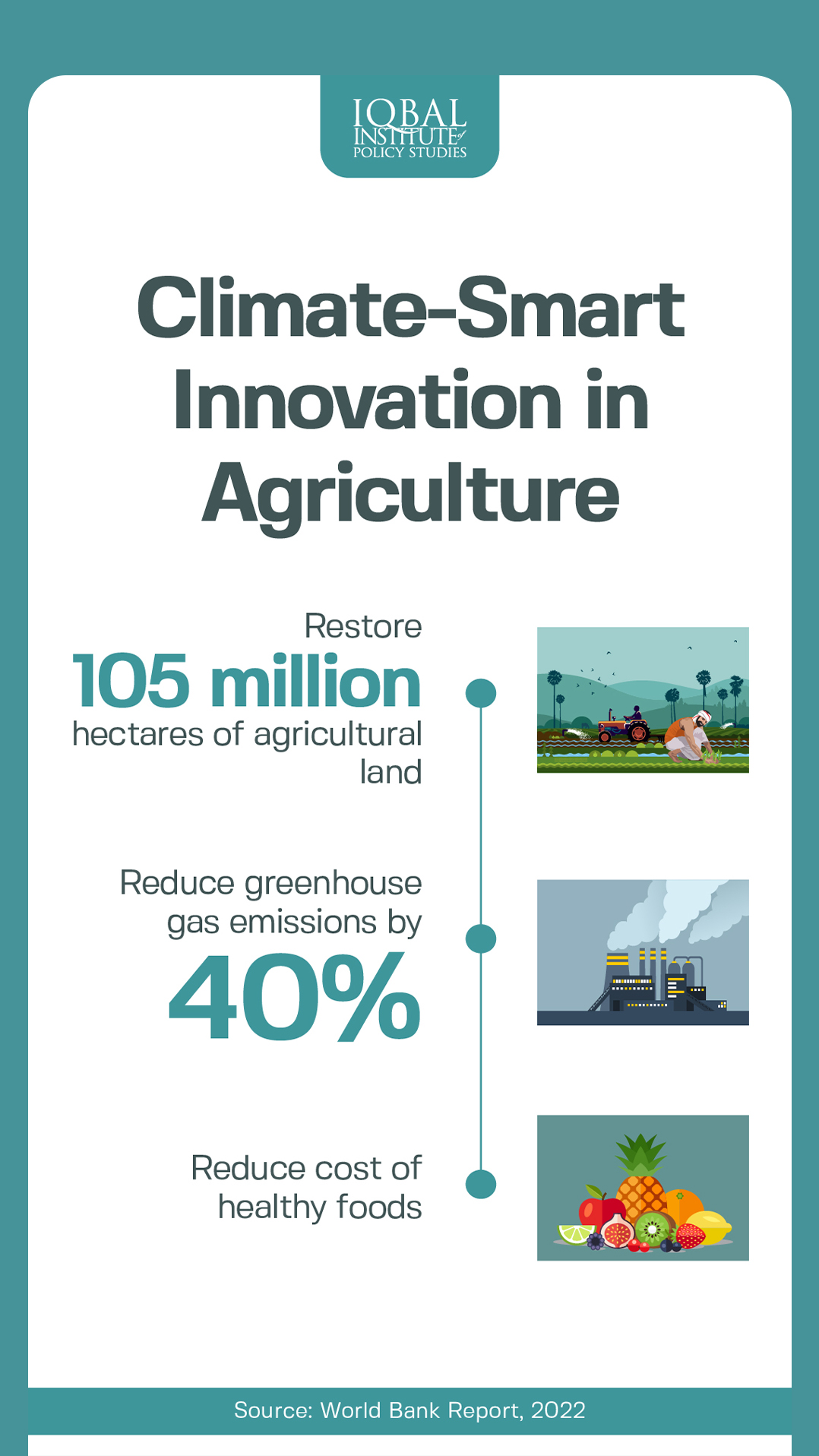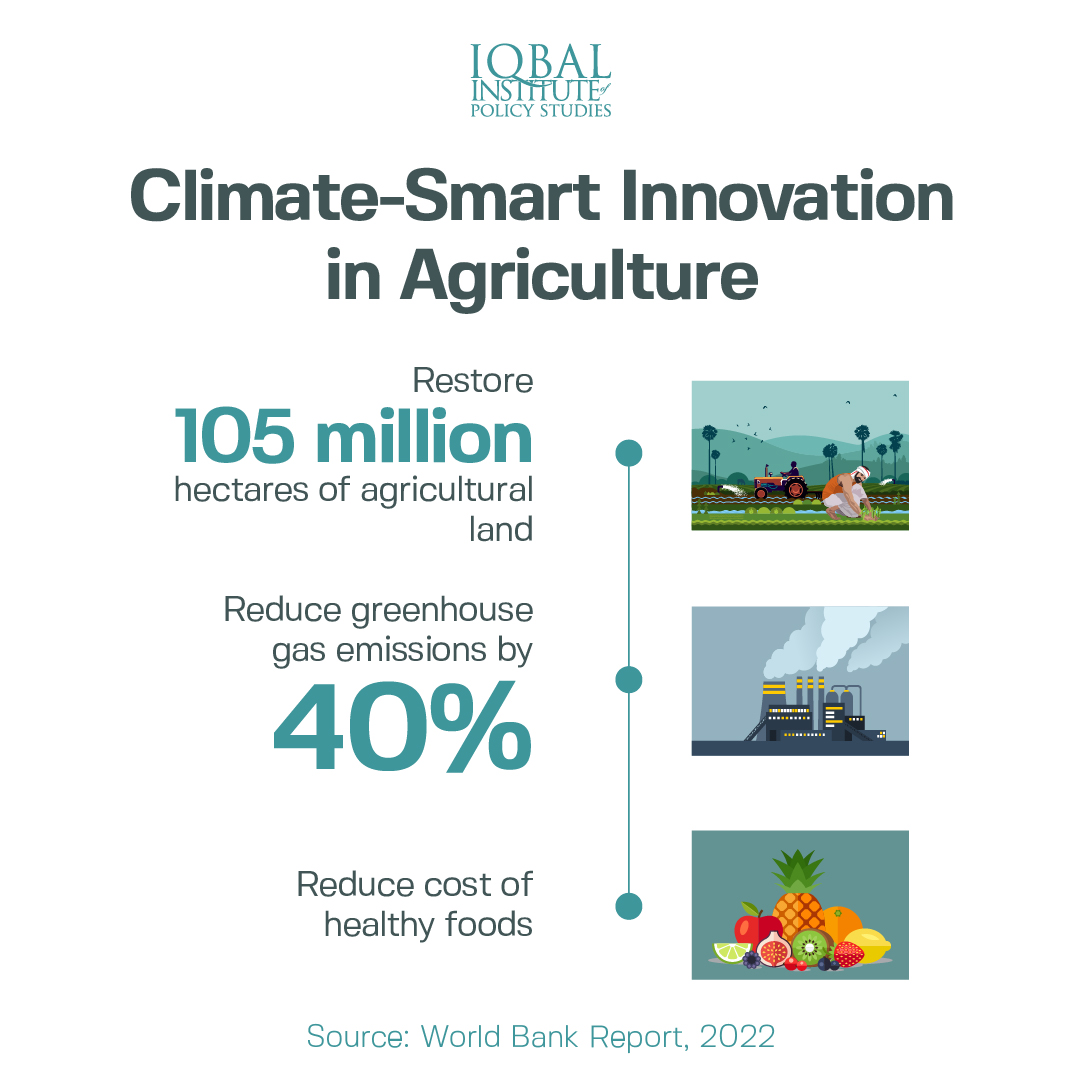
Pakistan derives several exports like cotton, textiles, and industrial raw material from its agricultural sector. The sector contributes 19% to the country’s annual Gross Domestic Product (GDP). Despite its massive economic significance, the agricultural practices remain outdated as farmers and landlords continue to employ primitive methods of farming and agriculture.
Pakistan’s current agricultural productivity remains stagnant at unacceptable levels. Besides this, the emerging threat of climate change affects the agricultural sector from different angles adversely.
According to a new World Bank report, repurposing current agricultural public policies can deliver several strategic benefits for the sector, the economy overall, and the people. The report titled Repurposing Agricultural Policies and Support: Options to Transform Agriculture and Food Systems for Better Health of People, Economies and Health revealed that investing in climate-smart innovations can increase agricultural productivity and reduce greenhouse gas emissions. According to the report, such practices could reduce agricultural emissions by 40% and restore natural habitat in 105 million hectares of agricultural land. This can also bring down the cost of nutritious foods. The agricultural sector can achieve this by implementing policies that prioritise and incentivise green investments.


Leave a Reply